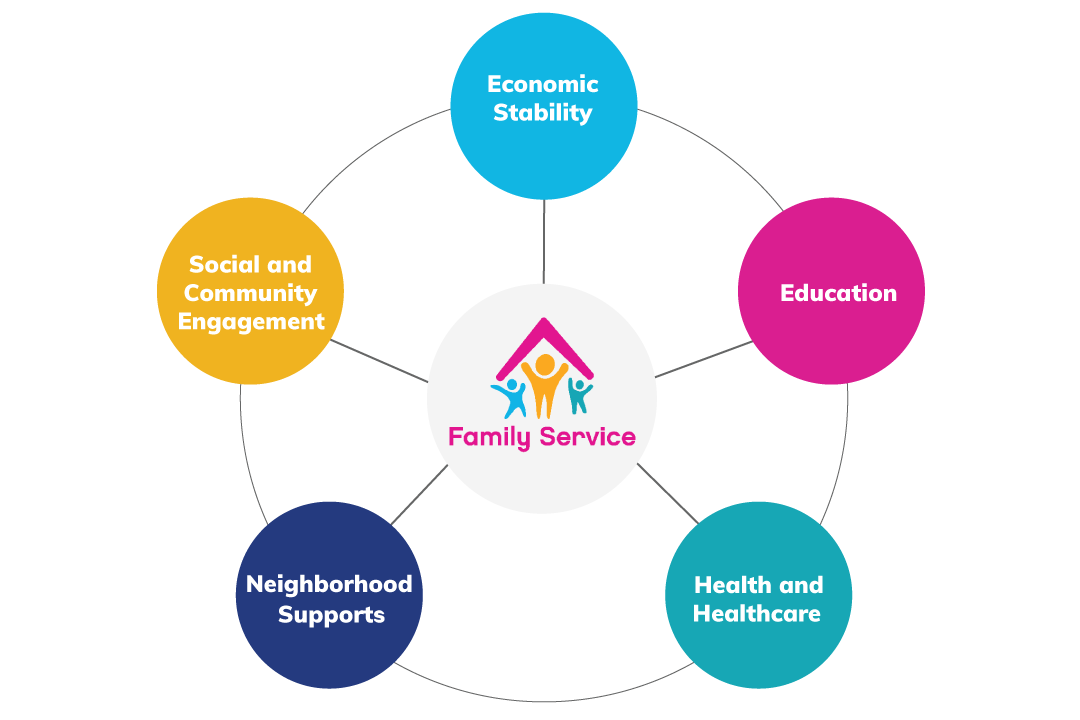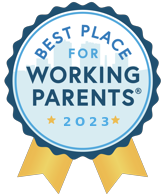Social determinants of health are the complex circumstances in which individuals are born and live that impact their health. Family Service program areas are categorized around the five social determinants of health as set by HealthyPeople 2020/2030.
We work to address all five areas, identified as economic stability, education, health and health care, neighborhood and built environment, and social and community context.
Social determinants of health include intangible factors such as political, socioeconomic, and cultural constructs.
They also include place-based conditions such as accessible health care and education systems, safe environmental conditions, occupations, employment status, workplace safety, well-designed neighborhoods, and availability of healthy foods.
Health typically brings to mind doctor offices, hospitals and medicine. These medical situations are referred to as downstream effects. We spend, on average, 100 minutes a year at the doctor. We spend the other 525,500 minutes living our lives. Upstream, or non-medical factors, such as behaviors, beliefs, environmental conditions, social disadvantages, and inequities, shape our health. These upstream factors directly correlate to what happens downstream e.g. at the doctor’s office. By addressing issues upstream, we’re decreasing the effects seen downstream.
Our health is built through the parks where our children play, our opportunities for higher education, the cleanliness and safety of our job sites, being able to socially connect in our neighborhoods, and more. The social determinants of health address all areas of well-being.
We are all people.
We all have challenges and successes.
We all strive to live our best lives.
Through our community coming together, we all can.
A happy, healthy and stable life is built through these core foundations; if one piece is missing, it can destabilize the entire structure. By strengthening all areas of our clients’ lives, we’re truly moving them forward, not just for today, but for the future.
Family Service aims to build a solid foundation for everyone through workforce training, education opportunities for all ages, financial counseling, family support, youth engagement, and health counseling.

Economic Stability
What does economic stability mean?
- Employment
- Food Insecurity
- Housing Instability
- Poverty
Family Service’s
Response Includes:
Education
What does education mean?
- Early Childhood Education and Development
- Enrollment in Higher Education
- High School Graduation
- Language and Literacy
Family Service’s
Response Includes:
Health and Healthcare
What does health and healthcare mean?
- Access to Health Care
- Access to Primary Care
- Health Literacy
Family Service’s
Response Includes:
Neighborhood Supports
What does neighborhood and built environment mean?
- Crime and Violence
- Environmental Conditions
- Quality of Housing
- Transportation and Physical Activity
Family Service’s
Response Includes:
Family Service’s programs and mission remain the same – we are continuing the work we have done for over 100 years. We’re simply changing the conversation around how we are achieving well-being for our families.
Family Service aligns our categorization of social determinants of health with a trauma-informed care lens approach. We administer the ACES (Adverse Child Experiences Survey) to our clients to better understand what experiences they have faced and guide our services.
The challenges we all face and the experiences we all have from an early age affect each of us throughout our lives. By taking the steps to ensure we understand where our clients are coming from and where they stand today, we can meet them where they are. Armed with the right knowledge, education and training, our case managers develop a concise and comprehensive plan to assist our individuals and families.




Social and Community Engagement
What does social and community context mean?
Family Service’s
Response Includes: